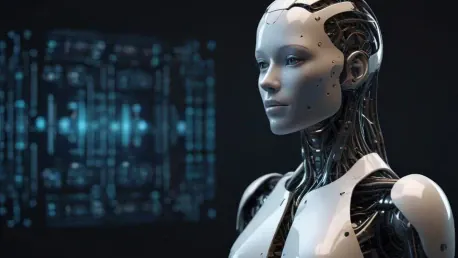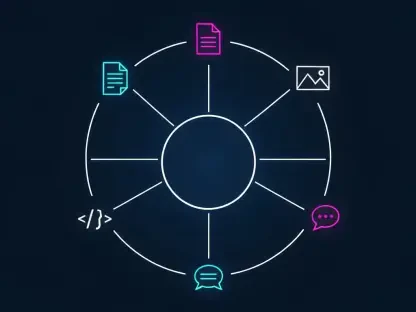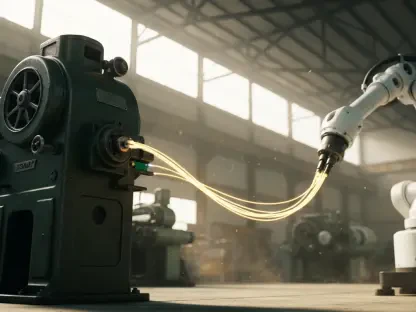Carbon Robotics, a Seattle-based startup founded in 2018, has emerged as a pioneering force in the agricultural technology sector, attracting significant attention with its innovative approach aimed at revolutionizing modern farming practices. Leading this transformation is the company’s flagship product, the “LaserWeeder,” an AI-powered machine that uses advanced laser technology to identify and eliminate weeds. With a recent $70 million raised in a Series D funding round led by BOND and supported by Nvidia’s venture capital wing, Carbon Robotics is well-positioned to scale its operations and further its impact on the agtech sector.
The Rise of Carbon Robotics in the Agtech Sector
Since its inception, Carbon Robotics has captured the attention of not only investors but also the agricultural community, indicating the potential impact of its technology on modern farming. The recent funding round has brought the company’s total capital raised to an impressive $157 million, a testament to the strong investor confidence in its technological direction and leadership. Under the guidance of founder and CEO Paul Mikesell, Carbon Robotics has seen its revenue double over the past year, a remarkable achievement in a sector where many other firms struggle to secure venture capital.
The agtech sector itself has faced significant challenges, with a McKinsey report indicating a 60% decline in venture funding since 2021. This downturn makes Carbon Robotics’ achievements even more notable, highlighting its exceptional position within the industry. The company’s ability to attract substantial investment is largely due to its practical, farmer-centric solutions that address real-world challenges faced by agricultural producers. Unlike many agtech startups that struggle with market adoption, Carbon Robotics offers functional products that resonate with end-users, an approach that has proven critical for its success.
The Technological Marvel: LaserWeeder
Central to Carbon Robotics’ innovative edge is the LaserWeeder, a technologically advanced machine designed to attach to the back of a tractor. The LaserWeeder utilizes 24 Nvidia graphics processing units, enabling it to process up to 4.7 million high-resolution images per hour. This capability allows the LaserWeeder to accurately identify and eliminate weeds using precision lasers, bypassing the need for chemical herbicides. This technology not only preserves soil microbiology but also effectively tackles herbicide-resistant weeds, promoting safer and more sustainable farming practices.
Founder Paul Mikesell underscores the LaserWeeder’s blend of advanced AI techniques and patented hardware mechanisms. This sophisticated combination not only mitigates the need for harmful chemicals but also addresses labor shortages in the agricultural industry by automating repetitive and hazardous tasks. By doing so, the LaserWeeder enables farmers to reallocate their workforce to more essential activities, thus improving overall farm productivity. This innovative solution exemplifies the kind of tangible improvement that Mikesell believes AI should bring to everyday life, particularly in vital sectors like agriculture.
Addressing Labor Shortages and Safer Farming Practices
One of the critical challenges facing modern agriculture today is a shortage of labor, which has significant implications for various farming operations. The LaserWeeder offers a practical solution to this problem by automating the tedious and hazardous task of weed removal, a process that is essential but often labor-intensive. By taking over this repetitive task, the LaserWeeder allows farmers to redeploy their workforce to more critical roles within their operations, improving overall farm efficiency and productivity.
In addition to addressing labor shortages, the LaserWeeder also supports safer farming practices by significantly reducing the use of herbicides. The machine’s ability to eliminate weeds using precise laser technology minimizes the need for chemical treatments, thereby preserving soil health and reducing chemical exposure for both the environment and farm workers. By promoting these safer farming practices, Carbon Robotics contributes to the long-term sustainability of agricultural ecosystems. Mikesell’s vision for AI transcends its popular applications, such as large language models like ChatGPT, and focuses instead on making tangible improvements that have a positive impact on everyday life, particularly in the agricultural sector.
A Grassroots Approach to Customer Engagement
Mikesell attributes a significant part of Carbon Robotics’ success to its grassroots approach to customer engagement, which involves close collaboration with farmers. Unlike other agtech firms that often rely on a “robots-as-a-service” model, Carbon Robotics emphasizes a customer-centric strategy. This approach involves direct engagement with farmers to understand and address their specific needs, contrasting sharply with the corporate-heavy approaches seen in Silicon Valley where companies frequently operate from the comfort of their offices without sufficient field engagement.
This grassroots involvement not only fosters strong relationships with farmers but also drives the development of technologies that are both practical and widely adopted. Investors such as Mood Rowghani, general partner at BOND, and Erik Benson, managing director at Voyager Capital, have praised Mikesell’s hands-on approach and his commitment to spending extensive time in the field. This level of dedicated customer engagement has proven to be a critical factor in the company’s success and ongoing development of farmer-friendly technological solutions.
Expanding Operations and Market Reach
Carbon Robotics is set to utilize the recent capital injection to support the opening of a new 24,000-square-foot manufacturing plant in Richland, Washington. This facility will significantly enhance the company’s production capabilities, enabling it to meet the growing demand for its innovative products. Currently employing 160 people, Carbon Robotics also has plans to extend its market reach into Asia, building on its already established presence in the U.S., Europe, and Australia.
In addition to its hardware solutions, Carbon Robotics offers a software platform that provides detailed insights into weeds and crops. This platform is available to farmers through an annual service and support fee, which includes regular software updates. By offering this software service, Carbon Robotics ensures that farmers have access to the latest advancements and data-driven farming insights. This diversification into software services complements the company’s hardware offerings, showcasing a holistic approach to addressing agricultural challenges and enhancing farm productivity.
Recognition and Future Prospects
Carbon Robotics, a startup based in Seattle and founded in 2018, has quickly become a trailblazer in the agricultural technology field. The company has garnered a lot of attention for its innovative initiatives aimed at modernizing farming techniques. At the forefront of this transformation is Carbon Robotics’ flagship product, the “LaserWeeder.” This cutting-edge machine employs artificial intelligence and advanced laser technology to accurately identify and eliminate weeds, significantly enhancing farming efficiency.
The company’s groundbreaking efforts have not gone unnoticed. Recently, Carbon Robotics secured $70 million in a Series D funding round, led by BOND and with substantial backing from Nvidia’s venture capital arm. This financial boost positions the company to scale its operations, allowing it to make a more significant impact on the agtech sector. Carbon Robotics is poised to continue its mission of revolutionizing how farms operate, promoting more sustainable and efficient agricultural practices through advanced technology.









